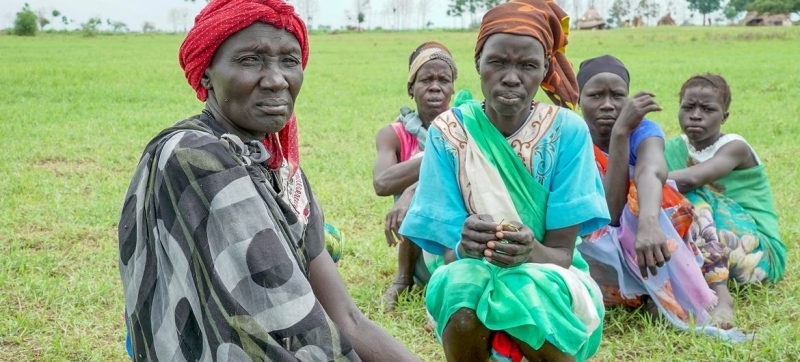- Tarique leaves for 300 feet area from airport |
- BNP top leaders welcome Tarique Rahman on homecoming |
- Flight carrying Tarique, family lands in Dhaka |
- Red bus with ‘Bangladesh first’ slogan ready at Dhaka airport for Tarique |
- Flight carrying Tarique, family lands at Dhaka Airport |
Famine Warning for South Sudan as Crises Deepen

Over half the population of South Sudan are acutely food insecure.
Aid agencies are warning that South Sudan could face a worsening food and nutrition emergency without urgent humanitarian support.
According to UN-backed hunger analysts, more than half of the population — around 7.56 million people — are projected to face crisis-level or worse food insecurity during the April to July 2026 lean season. In addition, the UN World Food Programme (WFP) said over two million children are expected to suffer from acute malnutrition during the same period.
WFP noted that food insecurity is “widespread and deepening” in several parts of the country.
“We have been constantly warning of the severe food and nutrition crisis the country continues to face,” UN Deputy Spokesperson Farhan Haq said in New York.
The latest assessment by the Integrated Food Security Phase Classification (IPC) system — the leading global authority on extreme hunger — shows that conditions are catastrophic for around 28,000 people in Luakpiny/Nasir and Fangak counties. The IPC warns that famine remains a real risk if conflict continues, access remains restricted, and flooding and disease outbreaks persist.
UN agencies stress that ending hunger depends on enabling farmers to cultivate their land and allowing markets to reopen safely.
Tsunami Preparedness Call
The UN Office for Disaster Risk Reduction (UNDRR) highlighted that tsunamis have killed more than 260,000 people over the past century, more than any other natural hazard. Marking World Tsunami Awareness Day, the agency urged greater investment in early-warning systems and community preparedness.
“Tsunamis are rare but catastrophic,” said UNDRR head Kamal Kishore. “Investing in preparedness saves lives.”
Recent events, including the 8.8 magnitude earthquake off Russia’s coast in July 2025, showed how rapid warnings can prevent large-scale casualties.
Rising Tensions Along Lebanon’s Blue Line
UN peacekeepers (UNIFIL) have reported increased military activity and exchanges of fire along the Blue Line separating Lebanon and Israel.
UN Deputy Spokesperson Farhan Haq said peacekeepers observed significant movements of Israeli military vehicles and multiple incidents involving small arms fire on both sides of the line.
He reminded all parties of their obligation to ensure the safety of UN personnel and property. UNIFIL continues joint patrols and training with the Lebanese Armed Forces.

